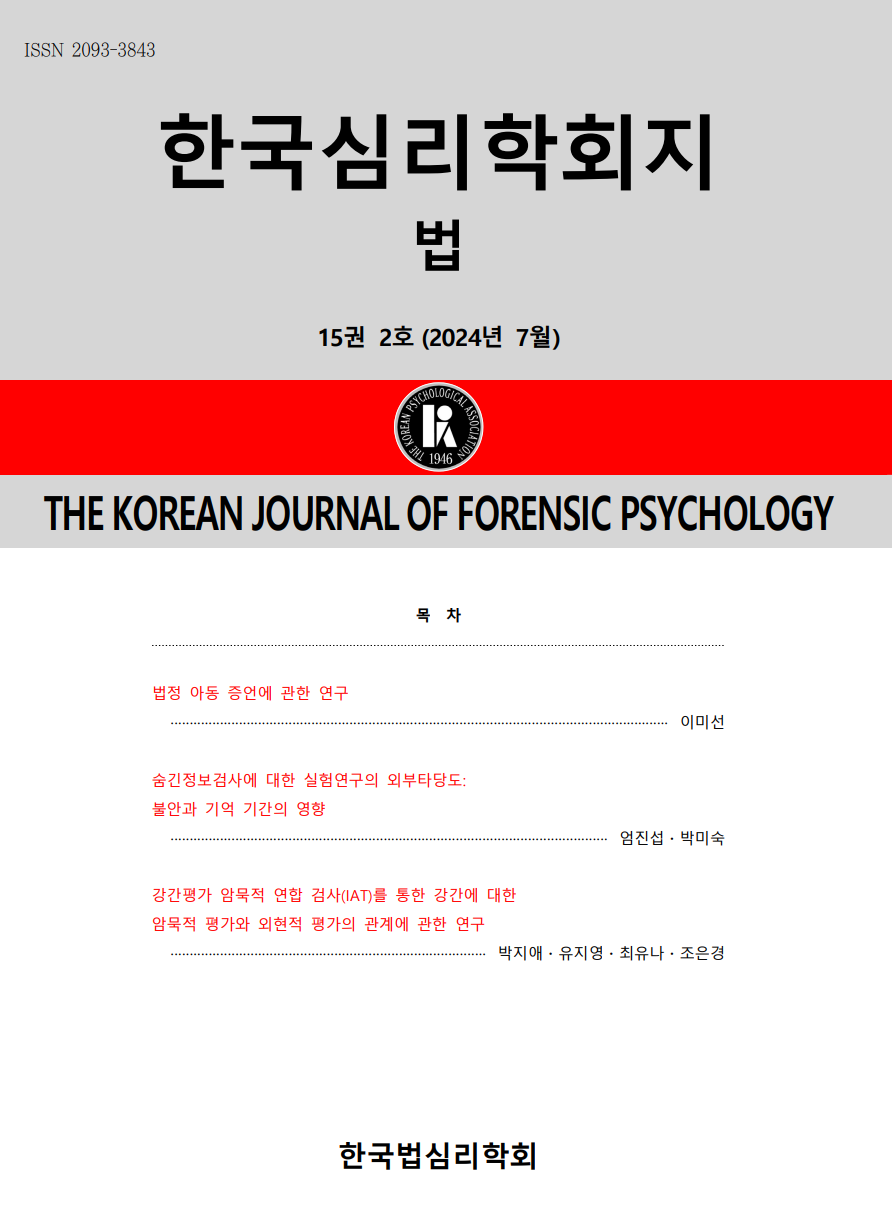 ISSN : 2093-3843
ISSN : 2093-3843
This study examined the influence of psychological distance, based on the concept proposed by Trope and Liberman (2010), on crime-related decision-making and risk perception. The research findings yielded statistically significant results in scenarios involving spatial distance. In conditions of psychologically distant condition, compared to closer spatial distance, there was a higher sufficiency of information for judgment, the ability to make judgments based on the provided information, and a tendency to strengthen sentencing criteria. Thus, this study empirically demonstrated that individuals’ decision-making could vary depending on how crime-related information is presented in scenarios involving spatial distance. Furthermore, psychologically closer spatial information constituted a higher level of risk perception, whereas psychologically distant spatial information constituted a lower level of risk perception. Specifically, it was found that men, compared to women, perceived a higher likelihood of crime occurrence and greater seriousness to the resulting harm. This finding contradicts the results of previous studies that reported women to be more fearful of crime victimization compared to men. These research results suggest that the psychological proximity individuals feel towards crime events may have a greater influence than demographic information such as gender, which has frequently been considered a significant predictor in traditional research on fear of crime and risk perception. Through this study, it was demonstrated that the level of individuals’ psychological distance towards crime phenomena has the potential to more accurately measure risk perception regarding crime events. This highlights the importance of considering psychological proximity when assessing individuals’ perception of risk associated with crime.